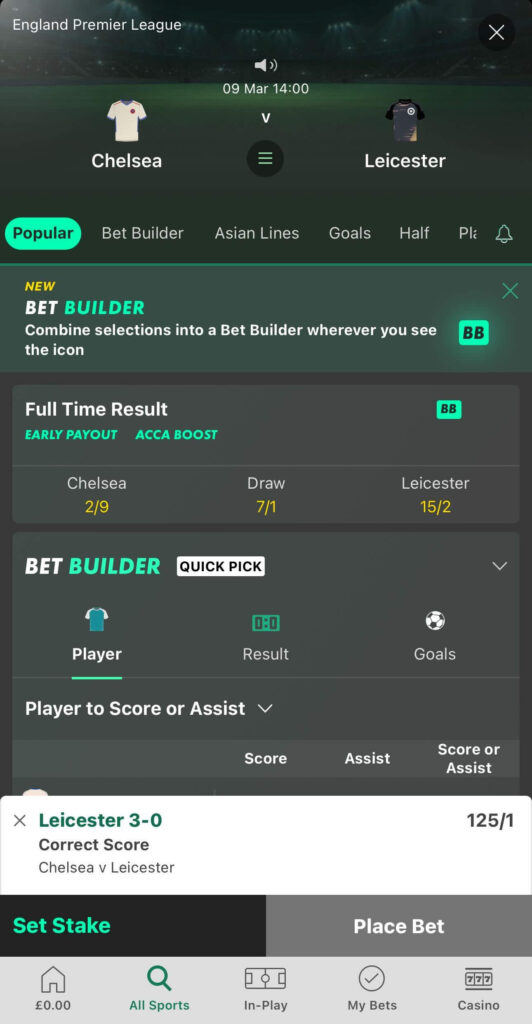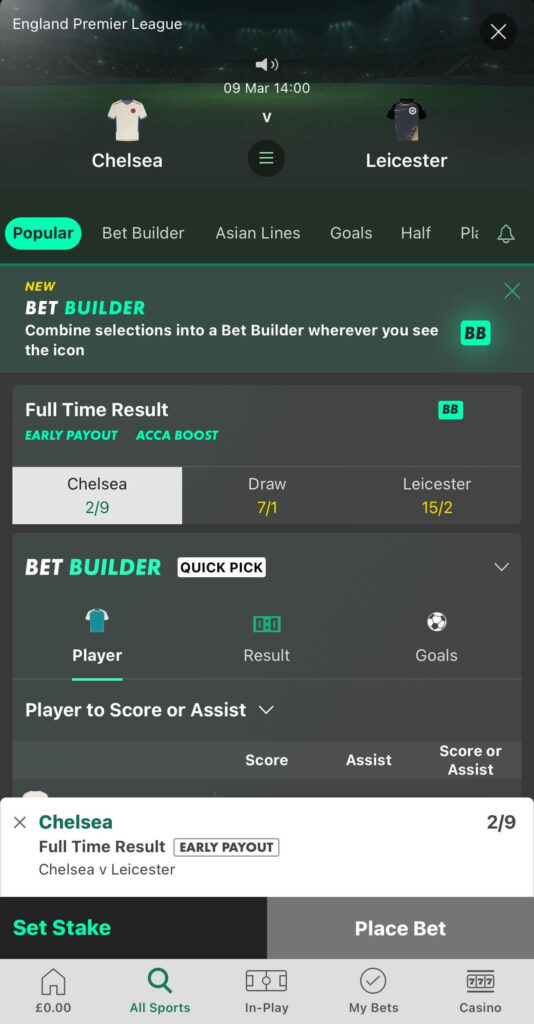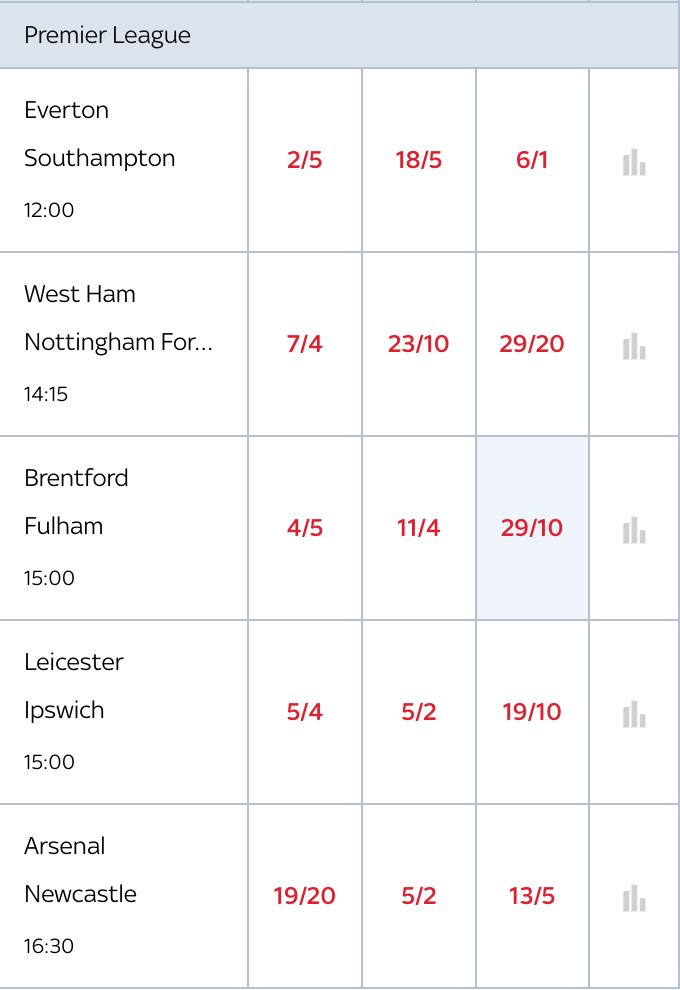Long and short odds can be difficult to understand for relatively new bettors, so you’ve reached the right page if you’re looking to understand everything you need to know about long and short odds.
What Are Long & Short Odds?
Long and short odds are very different from each other, and you need to understand them in order to understand how to bet, so it is massively important you make sure you know everything about long and short odds before you start betting.
With this in mind, we have provided you with detailed explanations of what each one is so that you know exactly what they are before you start betting.
Long Odds Meaning
Long and short odds are also known as odds on, and odds against, but they mean the same thing. Long odds are typically shown on a betting site on a betting market where the outcome isn’t very likely. A good example of long odds being offered would be if a football team in the National League or near the bottom of League Two were set to face a Premier League giant like Liverpool or Man City.
Liverpool or Man City would be the sizeable favourites to win that match with the quality they have in their team, so the team in the National League or in League Two that they are taking on would be available to win at long odds with most leading betting sites.
You can also see long odds if there is a clear winner in a sport and it looks like there is no opportunity for the opponent or opposition team to come back and win the match.
Short Odds Meaning
Short odds are usually available on outcomes that are more than likely to happen during a certain event. Short odds are typically priced under Evens (1/1 or 2.0) and can be found on many different betting markets within a bookmakers’ sportsbook.
A good example of short odds being available would be for a player of Novak Djokovic’s quality taking on a player that is playing his first professional match. Sinner has been the form player on the ATP Tour, and when performing at the top of his game, it would be a huge upset if he was to lose against someone playing their first professional match. Therefore, this difference in quality will be recognised by a betting site, as they’ll offer very short odds on Sinner winning the match.
It can be difficult to maximise your potential return on short odds in the short term unless you’re staking a considerable amount of money. However, over the long run, if you’re a skilled bettor that looks into statistics and the purposeful meaning behind each betting selection, then you could see a sizeable amount of profit in the long term, which is exactly what any punter should be striving for.
Examples Of Long & Short Odds
Here are a couple of examples of long term and short term odds, with images from betting sites to show you what they look like. We have used football betting for the examples that we have provided.
Long Odds Example
Leicester City to win 3-0 against Chelsea is seen as quite unlikely, so the odds for this selection are very high – 125/1. Placing a £10 bet means you will be able to win £1260 should Leicester City beat Chelsea 3-0.

Short Odds Example
Meanwhile, the chances of Chelsea winning are seen as quite high, especially with them battling for the top four whilst Leicester City are battling relegation. Placing a £10 bet on Chelsea to beat Leicester City will see you only receive £12.22 in total.

Deciding whether to place long odds or short odds bets
As previously mentioned, it can be difficult to win a significant amount of money from short odds bets, but over time, if you’re consistently winning, then you could see a return of a good amount of funds depending on how much you’re staking on each bet. Skilled bettors often look into various statistics on certain betting markets, as they look to potentially capitalise on long odds that are being offered by a betting site on a selection that wins more times than not. Shorter odd bets are technically more likely to come through, but with sport, there is always the chance that the long odds selection comes out on top.

However, these are relatively rare to find with the majority of bookmakers in the lead-up to an event taking place, although some eagle-eyed punters can find value in certain betting markets and odds as soon as they’re released by the operator. Long odds provide more value to punters who are potentially looking for a big-price winner in the short term, but it’s hugely important to remember that long-odds bets are much less likely to win than short-odds bets.
This guide has helped give you all the information you need to know when it comes to understanding long odds and short odds, and we have also answered some frequently asked questions below, so feel free to check them out as well!
You can find out more about other strategies on our page for how to bet online and a more in-depth look with our odds explained page.
If you are backing a horse who has long odds in a specific race, it means that your horse is one of the outsiders and not seen as a favourite to win the race. This doesn’t mean that your horse will fail to win, as anything can happen in a race, it just means that bookies believe that there is a small chance of it happening.
Short Odds means that the possibility of the outcome happening is more likely to happen. If the odds are long, then it means it makes it less likely to happen.
If you want to be in with the chance of winning more money, then bigger odds are better than smaller odds; however, if you want your bet to be more likely to actually win, then smaller odds are better are the smaller the odds are, the higher the chance you have of winning.
To reduce the odds of something means increasing its likelihood, while to increase the odds means making it less probable. Other common words or phrases when talking about odds shortening included ‘reduced’ or ‘increased’.
“Lengthen Your Odds” is an exciting feature that allows customers to bet on the winning distance of a specific horse. It is available daily from 10 AM for UK and Irish horse racing events. It is restricted to singles only, and it provides a focused and straightforward approach, enabling bettors to predict not just the winner but also the margin of their victory.
Fixed odds betting means that odds will not change. You will know the exact odds once you place your bet, and these odds will not be able to change after you have placed your bet.
No, in fact, it means the exact opposite. Higher odds are long odds and this means that the event is less likely to happen, or win.
In the UK, the two types of odds are decimal odds and fractional odds. Apart from how they are written, these odds are the same.


